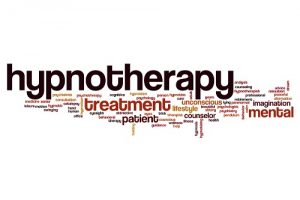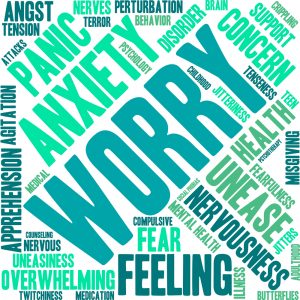Hypnosis can help many with health issues, bad habits, phobias and a variety of issues. Since the mind and body are connected, many physical ailments that stem from mental disorders, can also be alleviated through clinical hypnotherapy. Despite the magical image of stage hypnosis, individuals who actually learn about true hypnosis are opened to a world of possibilities in alleviating numerous mental and physical ailments.

The article, “What Can Hypnosis Do for Your Health?” by Hannah Seo examines the long history of clinical hypnotherapy and its gradual emergence as a reputable alternative therapy that can help individuals with numerous health conditions. She lists numerous health conditions that originate from mental issues such as anxiety. Irritable bowel syndrome, high blood pressure and other physically induced states due to depression or anxiety can find alleviation with hypnosis. In addition, clinical hypnosis can help with multiple issues of anxiety, depression, phobias, or even stopping bad habits. Seo states,
Today, hypnosis, also called hypnotherapy, has a lot more data to back up its use for mental health conditions like anxiety and depression. It can also be an effective treatment for sleep problems, pain, irritable bowel syndrome and quitting smoking, studies show. And it’s still occasionally used as a way to sedate patients for surgery with little (or no) medication. Despite all of these varied applications, hypnosis can’t seem to shake its reputation as a stage gag — in which you might stare at a pocket watch and then cluck like a chicken — or a way to retrieve lost memories and probe “past lives.”
“What Can Hypnosis Do for Your Health?”. Hannah Seo. February 8th, 2023. New York Times
To review the entire article, please click here
Commentary
Clinical hypnotherapy is a powerful tool for helping people address physical and psychological issues. If you’re looking for a non-invasive, natural way to improve your health and wellbeing, clinical hypnotherapy may be the answer. In this blog post, we’ll explore the history, mechanics, and potential benefits of clinical hypnotherapy.
What is Clinical Hypnotherapy?

Clinical hypnotherapy is a form of psychotherapy that uses hypnosis to help people address a wide range of issues. It is based on the idea that our thoughts and behaviors are shaped by our unconscious mind. By tapping into our unconscious, therapists can help us work through issues that we may not be able to access through conscious thought.
Hypnotherapy can be used in a variety of ways, from helping people quit smoking to assisting with trauma recovery. It is a safe, non-invasive, and natural way to help people heal and improve their overall wellbeing.
History of Clinical Hypnotherapy
The history of hypnotherapy dates back to ancient times. The practice was used in ancient Greece, Egypt, and China to treat a variety of physical and psychological issues. In the late 1700s, Austrian physician Franz Mesmer popularized the use of hypnosis for healing. He used a combination of mesmerism and suggestion to help his patients.
Throughout the 1800s, hypnotherapy was used as a tool for treating physical ailments. In the 1950s, the practice began to be used for psychological issues, such as stress and anxiety. Since then, clinical hypnotherapy has become an increasingly popular way to treat a wide range of physical and psychological issues.
How Does Clinical Hypnotherapy Work?
Clinical hypnotherapy works by tapping into the unconscious mind. During a session, the therapist will guide the patient into a state of deep relaxation. This state is often referred to as a trance. Once the patient is in a trance, the therapist will use hypnotic suggestions to help the patient work through their issues.
The trance state helps the patient access their unconscious mind, which can be beneficial in a variety of ways. It can help the patient recall memories and experiences that may have been previously inaccessible. It can also help the patient address deep-seated issues that may be causing them distress.
What Are the Benefits of Clinical Hypnotherapy?
There are a number of potential benefits to clinical hypnotherapy. It can help people address physical and psychological issues, from pain management to addiction. It can also be used to help people develop healthier habits and behaviors. Here are some of the potential benefits of clinical hypnotherapy:
- Reduced stress and anxiety
- Improved sleep
- Improved mood and outlook
- Increased confidence
- Improved concentration and focus
- Improved performance
- Increased self-awareness
- Improved relationships
Clinical Hypnotherapy for Stress and Anxiety
Clinical hypnotherapy can be a powerful tool for reducing stress and anxiety. During a session, the therapist will help the patient enter a relaxed state. Once the patient is relaxed, the therapist can use hypnotic suggestion to help the patient work through their issues. This can help the patient relax and manage their anxiety.
The therapist may also use visualization techniques to help the patient imagine a more relaxed state. This can help the patient reduce their stress levels and gain a better understanding of their feelings.
Clinical Hypnotherapy for Depression

Clinical hypnotherapy can also be beneficial for those suffering from depression. The therapist can use hypnotic suggestion to help the patient reframe negative thought patterns. This can help the patient break out of the cycle of negative thinking that can often accompany depression.
The therapist may also use visualization techniques to help the patient imagine a happier, more positive state. This can help the patient gain a better understanding of their depression and work towards a more positive outlook.
Clinical Hypnotherapy for Pain Management
Clinical hypnotherapy can be a powerful tool for managing pain. During a session, the therapist may use hypnotic suggestion to help the patient enter a more relaxed state. This can help the patient reduce their perception of pain and make it easier to cope with.
The therapist may also use visualization techniques to help the patient imagine a more pain-free state. This can help the patient reduce their pain levels and gain a better understanding of their pain.
Clinical Hypnotherapy for Weight Loss
Clinical hypnotherapy can also be beneficial for those looking to lose weight. The therapist may use hypnotic suggestion to help the patient break out of unhealthy habits and behaviors. This can help the patient make better dietary choices and form healthier habits.
The therapist may also use visualization techniques to help the patient imagine a healthier, more active lifestyle. This can help the patient gain a better understanding of their weight and work towards a healthier body and mind.
Clinical Hypnotherapy for Addiction
Clinical hypnotherapy can be a powerful tool for treating addiction. During a session, the therapist may use hypnotic suggestion to help the patient break out of destructive patterns. This can help the patient gain a better understanding of their addiction and make it easier to break the cycle of addiction.
The therapist may also use visualization techniques to help the patient imagine a life without their addiction. This can help the patient gain a better understanding of their addiction and work towards a healthier, addiction-free lifestyle.
Finding the Right Clinical Hypnotherapist and AIHCP Certification

If you’re interested in clinical hypnotherapy, it’s important to find the right therapist for you. Look for a therapist who has experience in the areas you’re looking to address. Also, be sure to ask about their qualifications and experience.
It’s also important to feel comfortable with your therapist. Look for someone who is compassionate and understanding. It’s also important to make sure that the therapist is certified and licensed. AIHCP offers a Clinical Hypnotherapy Certification that provides a multitude of qualified professionals who can help.
Conclusion
Clinical hypnotherapy is a powerful tool for helping people address physical and psychological issues. It can help people reduce stress and anxiety, manage pain, and even treat addiction. If you’re looking for a non-invasive, natural way to improve your health and wellbeing, clinical hypnotherapy may be the answer. Be sure to find a qualified, experienced therapist to ensure that you get the best results.
AIHCP trains numerous professionals into the art and science of Clinical Hypnotherapy. Qualified professionals can earn a four year certification with the American College of Clinical Hypnotherapy. The program is online and independent study and open to qualified professionals. If you are interested in learning how to help others overcome mental phobias and anxieties, then please review AIHCP’s Clinical Hypnotherapy Certification and see if it matches your academic and professional goals.
Additional Resources
“Hypnosis for Health. Can Trances Work?”. July 2019. News in Health. Access here
“Hypnosis”. John Hopkins Medicine. Access here
“Hypnosis”. Psychology Today. Access here
“What Is Hypnotherapy?”. Lisa Fritscher. July 9th, 2021. VeryWellHealth. Access here
“Hypnotherapy”. Anthony Watt. April 1st, 2019. Healthline. Access here
